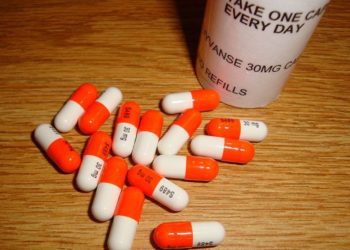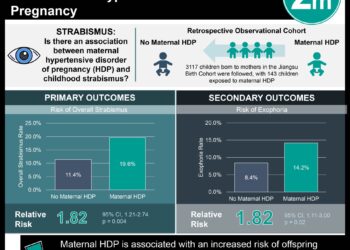Smartphone medication adherence application did not improve systolic blood pressure
1. In this randomized controlled trial, there was no significant difference in systolic blood pressure across participants that used the Medisafe app for blood pressure medication adherence as compared to controls.
Evidence Rating Level: 2 (Good)
Study Rundown: Successful blood pressure management is contingent upon dietary discretion, exercise and, importantly, medication adherence. Medication adherence is often a challenge for patients, and technology aimed at improving this are important to study. There are smartphone applications that are widely available, however their effects have not been rigorously tested. This randomized controlled trial aimed to determine if the Medisafe smartphone app improved self-reported medication adherence and objective blood pressure control.
After 12 weeks, despite self-reported small improvement in medication adherence, there was no significant difference in objective systolic blood pressure in participants who used the Medisafe app as compared to controls. Strengths of this study included good representation of females and minorities, however limitations included recruitment solely by online means and thus may not be generalizable to individuals of lower socioeconomic status without secured Internet access.
Click to read the study, published in JAMA Internal Medicine
Relevant Reading: The Effect of Self-Monitoring of Blood Pressure on Medication Adherence and Lifestyle Factors: A Systematic Review and Meta-Analysis
In-Depth [randomized trial]: This 2-arm randomized controlled trial was conducted in the United States where online enrollment occurred between April 2016 to September 2016. It included 411 participants aged 18 to 75 with systolic blood pressures of 140 mmHg or greater and were receiving treatment with at least 1 but no more than 3 first like anti-hypertensive medications. Exclusion criteria were: patients on 4 or more antihypertensives, those on dialysis, those with blood pressure greater than 180/120 mmHg, those on chemotherapy, those without a smartphone, those already using a medication adherence app. Patients were recruited through online patient communities, social media, mobile apps and targeted advertisements and once consented, were randomized 1:1 to intervention arm which required download and use of the Medisafe app (app includes reminder alerts, adherence reports, optional peer support) or control. The primary outcome was change from baseline to 12 weeks in self-reported medication adherence and change in systolic blood pressure. Intention-to-treat analysis was used.
The mean age of the 411 participants (209 randomized to the intervention group and 202 controls) was 52.0 years. Participants’ mean BMI was 35.5, 60% were female and 60% were African American. After 12 weeks the mean (SD) score on the Morisky medication adherence scale improved by 0.4 (1.5) among patients in the intervention group and was unchanged in the controls (95% CI 0.1-0.7; p = 0.01). However, mean (SD) systolic blood pressure (SBP did not change significantly in the intervention group after 12 weeks: SBP decreased by 10.6 (16.0) mmHg among the intervention group and 10.1 (15.4) mmHg among controls (95% CI -3.7 to 2.7; p = 0.78)
Image: PD
©2018 2 Minute Medicine, Inc. All rights reserved. No works may be reproduced without expressed written consent from 2 Minute Medicine, Inc. Inquire about licensing here. No article should be construed as medical advice and is not intended as such by the authors or by 2 Minute Medicine, Inc.






